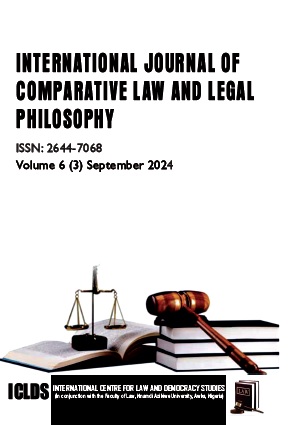SUPREMACY OF THE CONSTITUTION VERSUS SUPREMACY OF THE LEGISLATURE IN NIGERIA- IMPORTS, LIMITS AND CONSEQUENCES
Keywords:
Nigerian Constitution, Judiciary, Legislature, Supremacy, VoidAbstract
The doctrine of separation of powers entails that none of the three arms of government encroaches into the powers of the other. Thus, the lawmaking powers of the legislature is sacrosanct as it can make, amend or repeal any law. Nonetheless, the nagging questions are whether legislative powers can be exercised in breach of constitutional provisions and where this happens, what will be the consequence? To resolve this quagmire, this paper deployed the doctrinal research method to analyse diverse statutory and judicial authorities on the intricate but interwoven principles of supremacy of the constitution, separation of powers, checks and balances. The paper further examined the supremacy of the Constitution against the touted supremacy of the legislature and the role of the judiciary where a statute is enacted in breach of the Constitution. It was established that the Constitution is supreme and inviolable for all purposes and that despite separation of powers, the lawmaking power of the legislature cannot be exercised in flagrant violation of constitutional provisions. The paper further determined that the judiciary as the bulwark of the Constitution, acting within the province of its interpretative jurisdiction, is under a duty to uphold the supremacy of the Constitution and consequently declare any statute enacted in breach of the Constitution null and void. It was therefore recommended among other things that in the exercise of its unfettered lawmaking powers, the legislature must strive to uphold the supremacy of the Constitution in order not to legislate in vain.

